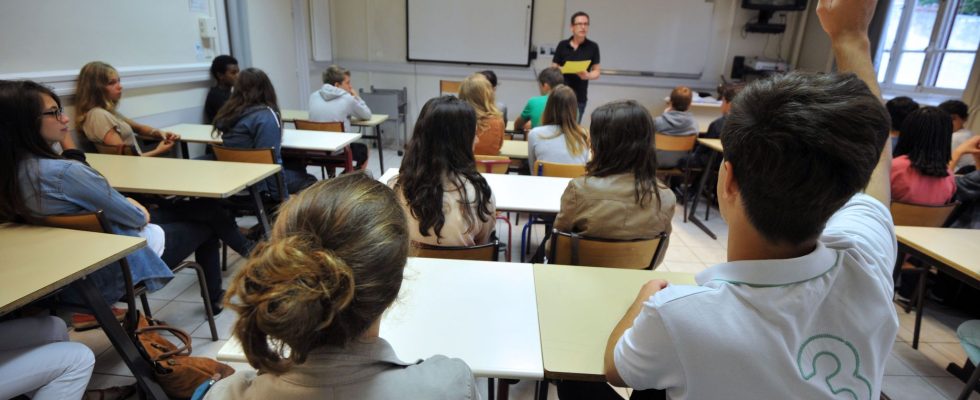In the Hérault, in Montpellier, it all starts with an email dated May 11 at 8:35 a.m., addressed to the heads of establishments of the colleges and high schools of the department, report our colleagues from World who have been able to consult it. “We are asked about school absenteeism during the Ramadan period […] and particularly on the day of April 21, Eid day [Aïd-el-Fitr, qui marque la fin du jeûne religieux]“, is it written. A few lines further, the author signing the email, a senior official of the departmental service of national education, thus asks to answer two questions: “Has Ramadan had an impact on absenteeism?”, and “what was the absenteeism rate for the day of April 21 (Eid holiday)?”.
The next day, May 12, in a new email, Christophe Mauny, the academic director of the national education services (Dasen) of the department, asks the same list of recipients not to take this request into account. But that is not enough to calm the spirits “scandalized” by such a request in the ranks of National Education.
A request issued by the police, not by National Education
Further west, in Toulouse, a similar email was sent to a hundred schools from territorial intelligence on April 26. But it was not until the return from the school holidays, on May 2, that the teachers became aware of it. The request is the same: ask for the absenteeism rate of students on April 21, Eid day, “to carry out an assessment”, according to the newspaper The Midi Dispatch, who may have viewed this email. “School principals and heads of establishments have been asked to provide figures for absenteeism on Eid day,” a union source told Agence France Presse (AFP), confirming the information published by the regional daily.
This request was made by email, without the approval of the rectorate of Toulouse: “In no case do we carry out investigations of this kind”, declared to AFP Mostafa Fourar, rector of the academy. And to add: “If someone took this initiative, National Education is absolutely not associated with it”.
A “clumsiness” in the formulation of the request
According to a source familiar with the matter, “it is a clumsiness”. “The territorial intelligence services went through national education referent police officers, their message was poorly formulated, but asking for an absenteeism rate is not filing or personal data”, underlined this source with from AFP.
This territorial intelligence work is part of a context of “renewed attacks on secularism in schools” during the Ramadan period, continues this same source, with for example “challenges for social networks to film themselves with a veil” or refusals to participate in singing and music lessons.
According to several teachers’ unions, such a request had never been requested before, even for other religious holidays. “A worrying precedent”, according to the Snes-FSU, which denounces an association by the police of the Muslim religion with a question of security. The police request is “particularly shocking in that it associates Muslim religious practice with a question of security”, also reacted on its side SOS Racisme.
An “evaluation” requested by the Interior from certain academies
This Sunday, May 21, the Ministry of the Interior finally admitted having asked certain academies for an “assessment of the rate of absenteeism observed during Eid al-Fitr” but denies any “recording”, said Sunday the Secretary of State responsible for citizenship Sonia Backès in the face of the indignation aroused by the initiative.
“The Ministry of the Interior and Overseas regularly studies the impact of certain religious holidays on the functioning of public services, and in particular within the school sphere”, indicated Sonia Backès in a press release. The Secretary of State, however, brushes aside the practice of registering students according to their confession. “No nominative data was neither requested nor recorded at any time”, she defends herself.
Questioned on April 24 on franceinfo, in reaction to an article by Figaro published the same day, which advanced a “leap” in absenteeism during Eid-el-Fitr “encouraged by the TikTok trend”, the Minister of National Education, Pap Ndiaye, had then assured not “to have any figure” on the subject and recalled the law in force on the subject. A circular of 2004 thus provides that “authorizations of absence must be able to be granted to pupils for major religious holidays which do not coincide with a day off”, the list of which is drawn up by the National Education.
